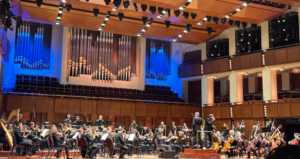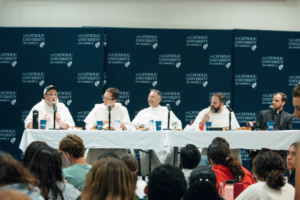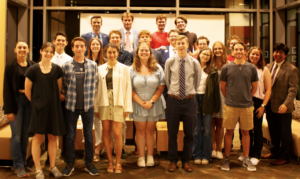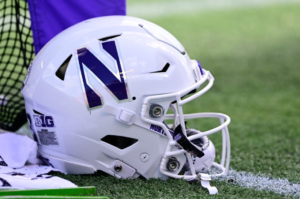Northwestern Hazing Scandal Updates
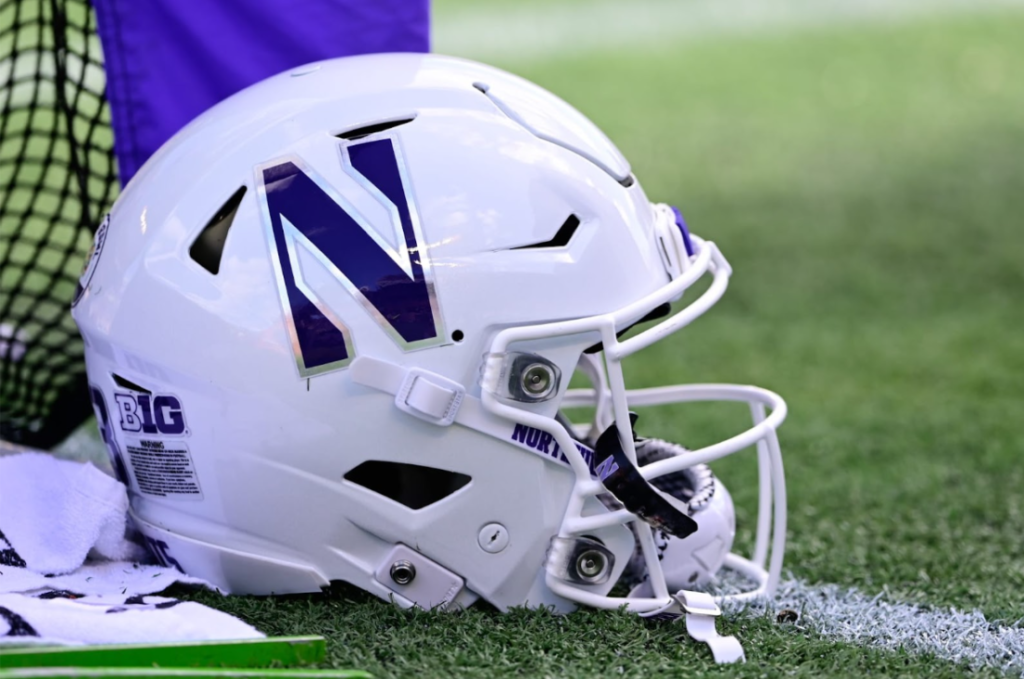
Picture Courtesy of Bleacher Report
By MaggieMae Dethlefsen
With major legal, administrative, and communal ramifications, what started as unsettling claims of hazing within Northwestern University’s football program in 2022 has continued to develop. New updates on the scandal’s developments show that the university is still working to resolve the problems and change its rules.
The Northwestern football program was accused of excessive hazing tactics by former players and personnel, which sparked the hazing scandal in January 2022. Reports described episodes of physical and mental abuse, including coerced engagement in degrading customs and hostile conduct that caused long-lasting trauma in several students. The first information was leaked by a group of ex-players who claimed that the program’s hazing was not only accepted but also institutionalized.
The university answered right away. In addition to putting numerous people on administrative leave and announcing an internal inquiry, Northwestern also suspended athletic director Derrick Gragg and head football coach Pat Fitzgerald. The claims spurred a wider discussion about the collegiate athletics culture and the safeguards to stop these abuses.
Many revelations have emerged since the scandal first surfaced, providing insight into the university’s response to the crisis and its wider effects on the community.
The most important updates have to do with court settlements. The Chicago Tribune reports that Northwestern University has reached agreements with several former athletes. These settlements, which come to a total of more than $10 million, include personal injury and emotional anguish claims arising from the hazing incidents. Sources confirm that the settlements include provisions for increased victim support services, even though the exact details are still under wraps.
The Illinois Department of Human Services has opened an inquiry into possible state law violations in addition to private settlements. State investigators are closely examining the university’s reaction and monitoring procedures as part of an inquiry into any shortcomings in the university’s obligation to report and resolve the abuse.
Northwestern has started a thorough revision of its anti-hazing and athlete welfare rules in reaction to the issue. The institution has made anti-hazing training mandatory for all teachers, staff, and athletic teams. The purpose of this course is to teach participants how to spot, report, and stop hazing.
In addition, an impartial review panel within Northwestern has been created to guarantee adherence to the recently implemented guidelines and to handle any subsequent grievances. The board, which is comprised of advocates and outside experts, will conduct frequent audits and make its conclusions transparent. To rebuild confidence and make sure that such situations don’t happen again, this step is thought to be essential.
The controversy also brought about several important administrative changes at the university. Following the accusations, Derrick Gragg, Northwestern’s athletic director, and Pat Fitzgerald, the head football coach, were fired. The decision was made in response to mounting calls for accountability and structural reform from the public, alumni, and students.
Michael Schill, the newly appointed president of Northwestern, began his tenure in early 2023 and has been actively involved in handling the scandal’s aftermath. Schill has made a stated commitment to changing the way the institution handles ethics and the welfare of its students, with a focus on a zero-tolerance policy for abuse and hazing. His direction is thought to have been crucial in helping the organization get through its rehabilitation.
The Northwestern community has suffered greatly as a result of the controversy. Reactions have been strong, with student and alumni organizations calling for more reform and openness. A comprehensive article on the scandal’s aftermath was published in Northwestern Alumni Magazine, emphasizing the demands for stronger victim support networks and stricter measures to stop hazing.
Student organizations have planned conferences and demonstrations to talk about the scandal’s effects and push for more reforms. The university has addressed concerns and restored community trust by holding open forums and offering support to students impacted by the scandal.
The Northwestern incident has raised concerns about hazing policies in collegiate football programs nationwide. Comprehensive reports of mistreatment together with the ensuing judicial and administrative proceedings have led to a more thorough investigation of comparable practices in other programs. Universities and sports departments are under pressure to address and change any dubious practices that may exist within their programs as a result of media scrutiny and public outcry.
Many collegiate football schools have tightened their rules around player conduct and hazing in reaction to the incident. Hazing has been defined more precisely, and there are now better standards for reporting and dealing with it in the codes of conduct that have been updated by the National Collegiate Athletic Association (NCAA) and several conferences. Athletes, coaches, and staff must now get compulsory training from programs on identifying and combating hazing.
Colleges and universities have made it simpler for students to report hazing and other forms of abuse without fear of reprisal by strengthening or introducing anonymous reporting mechanisms. Allegations are intended to be handled swiftly and transparently thanks to these systems. Establishing secure routes for reporting has become a customary procedure to safeguard pupils and encourage responsibility. These actions along with others such as changing the recruiting process, changing the perspective of the athletes in the program view on mental health, and trying to make it so that it is positive, to try and create a more healthy environment in collegiate athletics.
The 2022 Northwestern hazing incident has brought attention to important problems with institutional oversight and collegiate athletics. The updates show a convoluted picture of court cases, administrative adjustments, and neighborhood reactions. The priorities of Northwestern University’s response to the crisis include still holding people accountable, putting good reforms in place, and helping those who were impacted by the crimes. The current events serve as a timely reminder of how crucial it is to uphold moral principles and protect every student’s welfare in educational settings.

